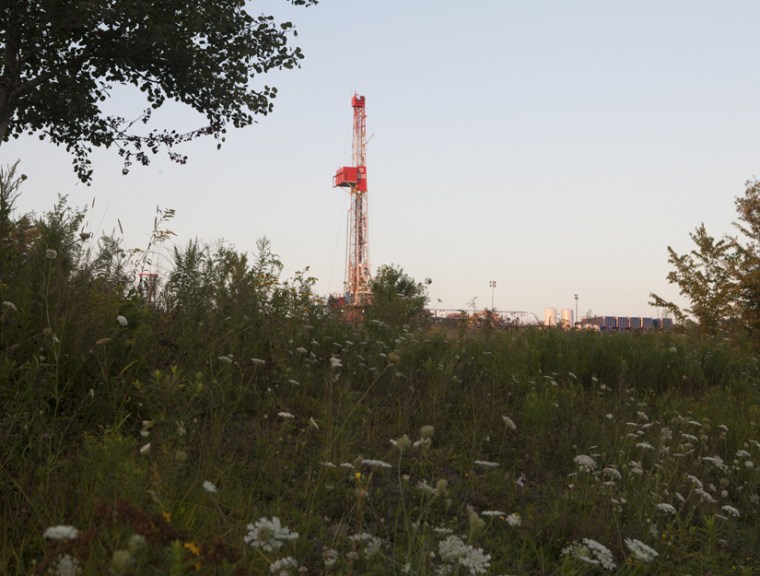Recent earthquakes in Ohio and Oklahoma have been directly linked to deep wells used to dispose of liquid wastes for hydraulic fracturing or "fracking" of natural gas, according to geological experts.
And they expect more earthquakes to come as the industry continues to expand across the eastern United States.
A boom in gas production using hydraulic fracturing or "fracking" of natural gas has played a role in decreasing U.S. dependence on foreign oil and coal and helped cut energy prices, but evidence is mounting that the process may come at a price.
"To the extent that our nation wants to become independent of meeting its energy needs in the coming years, the increased earthquakes are going to go along with that," said Art McGarr, a geophysicist with the U.S. Geological Survey in Menlo Park, Calif. "The problems are only going to grow in the future."
State officials shut down all drilling around a brine-injection well after a magnitude-4.0 quake rumbled through the Youngstown, Ohio, on New Year's Eve day. That was the 11th earthquake in 2011 in the region, which is not considered seismically active. Experts are also investigating a magnitude-5.6 earthquake east of Oklahoma City that has been linked to gas drilling there, McGarr said.
NEWS: Gas Well Fracked a Big Oops
"It's reasonably clear that these Youngstown earthquakes are being caused by the disposal well activities," McGarr said. "The earthquakes started in March of last year. That's about the same period that the major injection activities started."
A team of investigators from Columbia University's Lamont-Doherty Earth Observatory has been trying to figure out the connection between the earthquakes and the injection well, which takes waste fluids from nearby fracking operations, for the past few months. John Armbruster, a seismologist on the team, said the wells trigger quakes that are already poised to occur.
Armbruster compared the disposal well to a hydraulic jack that is slowly splitting an underground fault.
The well "is forcing the two sides apart and it starts to slip," Armbruster said. "The earthquake is the slip."
At least 177 similar disposal wells are located throughout Ohio, and Armbruster says it will take a while for the pressure from the fracking fluids to disperse into the earth.
NEWS: Fracking Alternative? Or Just Hot Air?
During fracking, high-pressure water and chemicals are forced into shale rock to force out natural gas. Supporters say it's an efficient way to tap into vast petroleum resources that lay under the Eastern United States. Homeowners and environmental groups in Pennsylvania have complained that fracking fluids have poisoned underground drinking water supplies in some areas. New York officials are considering whether to allow fracking in the Marcellus and Utica shale despots that lie underneath the state.
Armbruster said a disposal well in the western Finger Lakes area of New York was shut down in 2001 because of earthquakes. He says that he's working on a model to predict which areas near drilling sites will be susceptible to earthquakes, although there's still no way to accurately predict their size and strength.
"When you operate one of these wells, you have to monitor it more carefully and see when it begins to cause earthquakes," Armbruster said. "If you shut it down, you are much more likely to prevent a damaging earthquake that would come later."
So far, the earthquakes linked to drilling operations have been relatively minor. Both experts said they don't have enough data yet to know whether the industrial drilling could spawn more destructive ones.
